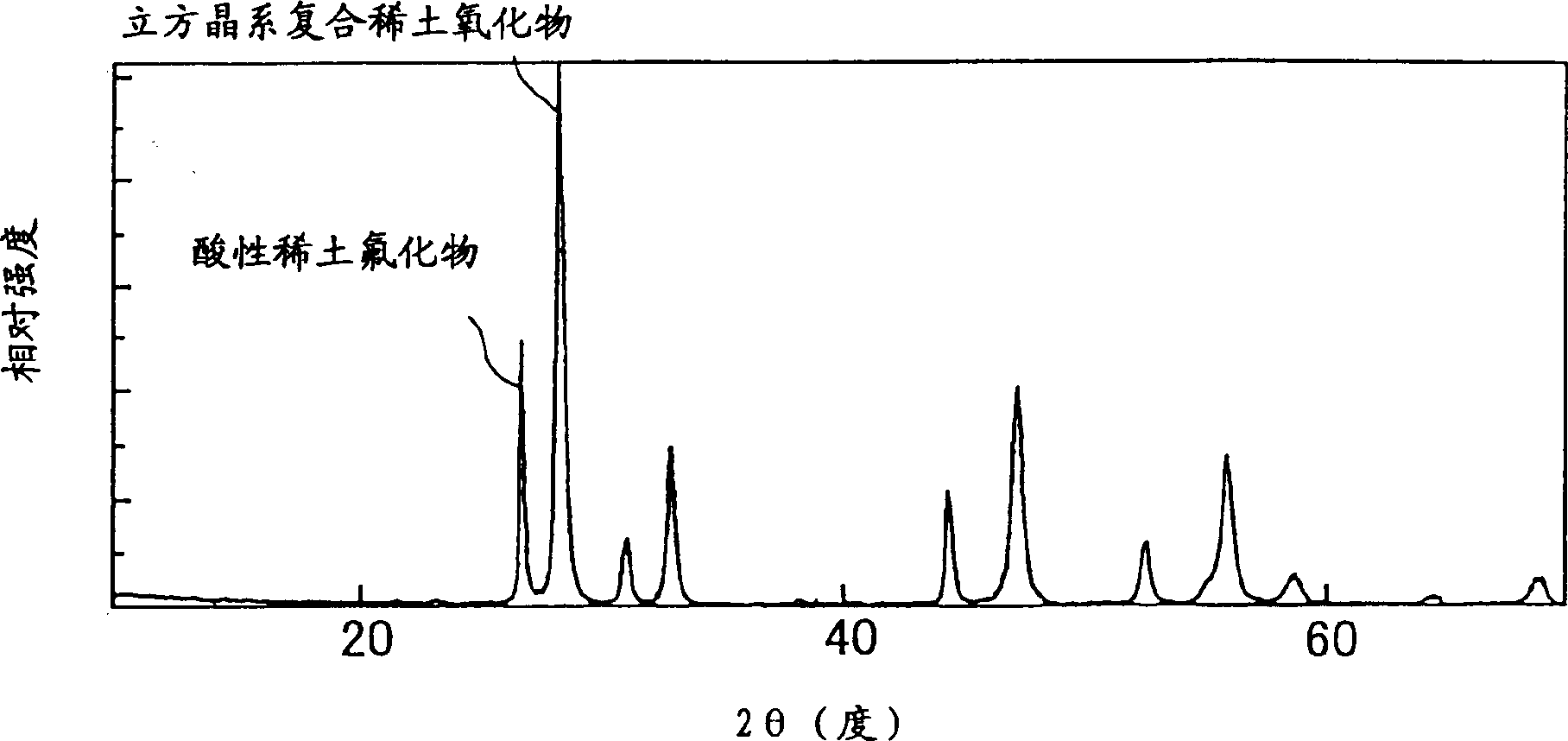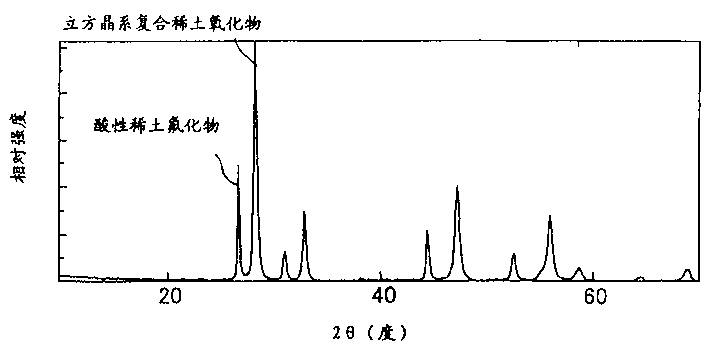Cerium-based abrasive and production process thereof
A technology of abrasives and production methods, applied in other chemical processes, polishing compositions containing abrasives, rare earth metal fluorides, etc., can solve problems such as unfavorable glass surface, poor chemical action, and reduced relative concentration of cerium oxide
- Summary
- Abstract
- Description
- Claims
- Application Information
AI Technical Summary
Problems solved by technology
Method used
Image
Examples
Embodiment 1
[0050] Will contain 47% by mass of rare earth elements (calculated as oxides), 53% by mass of impurities other than rare earth elements, 2% by mass of medium to heavy rare earth elements (calculated as oxides), 8% by mass Nd (calculated as oxides) Rare earth concentrate (ore) treatment to obtain mixed light rare earth compounds. In these mixed light rare earth compounds, the content of impurities other than rare earth elements is reduced to not more than 1% by mass, and the contents of medium to heavy rare earth elements and neodymium are reduced to not more than 1% by mass, respectively. Carbonation of this compound with ammonium bicarbonate yields mixed rare earth carbonates.
[0051] The obtained mixed rare earth carbonate contained 49% by mass of rare earth elements, calculated as oxides, and 60% by mass of cerium was contained in these rare earth elements. Two liters of mixed rare earth carbonates were calcined in an electric furnace at 800° C. for 2 hours to obtain mixe...
Embodiment 2
[0065] The procedure of Example 1 was repeated except that 80 parts by weight of the mixed rare earth carbonate obtained by carbonating the uncalcined mixed light rare earth compound with ammonium bicarbonate was replaced by 40 parts by weight of the mixed rare earth used as the first raw material The oxides are substituted, thus forming a mixture of mixed rare earth oxides and mixed rare earth carbonates, which then yields cerium-containing abrasives.
[0066] The above cerium-containing abrasive was polished by the same method as used in Example 1, and the condition of the polished surface was evaluated. The polishing characteristics and physical properties of the abrasives are shown in Tables 1 and 2 below, respectively. Comparative example 1:
PUM
| Property | Measurement | Unit |
|---|---|---|
| particle diameter | aaaaa | aaaaa |
| specific surface area | aaaaa | aaaaa |
| size | aaaaa | aaaaa |
Abstract
Description
Claims
Application Information
 Login to View More
Login to View More - R&D Engineer
- R&D Manager
- IP Professional
- Industry Leading Data Capabilities
- Powerful AI technology
- Patent DNA Extraction
Browse by: Latest US Patents, China's latest patents, Technical Efficacy Thesaurus, Application Domain, Technology Topic, Popular Technical Reports.
© 2024 PatSnap. All rights reserved.Legal|Privacy policy|Modern Slavery Act Transparency Statement|Sitemap|About US| Contact US: help@patsnap.com










